The Best Dog Beds for Pembroke Welsh Corgi
Orthopedic Beds are Best for Corgis!
Introduction
The best dog beds for Pembroke Welsh Corgi are those that provide adequate support, especially for their joints and preferences. Orthopedic dog beds are best.
The Pembroke Welsh Corgi is a small yet sturdy herding dog renowned for its distinct appearance and lively personality. These dogs boast a fox-like face, upright ears, and a docked or naturally bobbed tail.
They are known for their intelligence and affectionate nature, Corgis are beloved companions, loyal, and adept working dogs were used for cattle herding. Despite their short stature, they exhibit a robust energy level, requiring regular exercise and mental stimulation.
In this article we will share information about the Pembroke Welsh Corgi for potential owners, so they are aware of the costs of owning this dog, health concerns, the best dog beds for them, and facts about this dog breed which you may not be aware of.
Best Dog Beds
Choosing the right dog bed for a Pembroke Welsh Corgi involves considering their unique characteristics and needs, particularly their size, coat type, and sleeping habits. Here are some recommendations for dog beds that would be suitable for a Corgi:
- Size and Shape: Since Pembroke Welsh Corgis are small to medium-sized dogs with a distinctive elongated body, a rectangular or oval-shaped bed that provides enough length for them to stretch out comfortably is ideal. The bed should be large enough to accommodate their entire body, including their extended spine.
- Supportive Material: Given their propensity for back issues like intervertebral disc disease (IVDD), choosing a bed with supportive memory foam or orthopedic foam can help cushion their joints and spine. This type of material conforms to their body shape and provides adequate support, especially as they age.
- Ease of Access: Corgis have short legs, so choosing a bed that is low to the ground or has a low front edge allows them to easily climb onto and off the bed without straining themselves.
- Durability and Washability: Look for a bed with a removable, machine-washable cover to facilitate easy cleaning, as Corgis shed moderately and may track dirt into their sleeping area. Additionally, durable materials ensure the bed withstands regular use.
- Temperature Regulation: Corgis have a double coat that keeps them warm, so consider the climate where you live. Opt for a bed with breathable materials or cooling properties if you live in a warmer climate to prevent overheating.
- Elevated Beds: Some Corgis may prefer elevated beds, especially if they like to have a vantage point or if you have drafty floors. Elevated beds also provide airflow underneath, which can help regulate temperature.
- Water-Resistant or Waterproof: If your Corgi is prone to accidents or you want added protection against spills, consider a bed with a water-resistant or waterproof liner.
- Placing the Bed: When placing the bed be sure to select an area that is out of the way of heavy traffic and drafty areas of the house.
- Look for the CertiPUR-US Seal: When buying any orthopedic dog bed, look for the CertiPUR-US seal. The seal means that the materials used in making the dog bed does not contain any harmful chemicals or toxins that are bad for humans and pets.
Considering these factors will help you choose a comfortable and supportive bed that meets the specific needs of your Pembroke Welsh Corgi, ensuring they have a cozy place to rest and sleep comfortably.
Best Dog Bed Brands
When looking for a dog bed brand it’s important to consider durability, comfort, support, and ease of maintenance. Here are some reputable brands known for producing high-quality dog beds:
- Big Barker: Known for their orthopedic dog beds designed with supportive foam that is particularly beneficial for dogs prone to joint issues like Corgis.
- PetFusion: Offers orthopedic memory foam beds that provide excellent support and comfort, with removable, machine-washable covers.
- Bolster Beds by K9 Ballistics: These beds feature durable materials and supportive bolsters, ideal for Corgis who like to lean against something while sleeping.
- FurHaven: Provides a wide range of bed styles including orthopedic, memory foam, and cooling gel beds, catering to different needs and preferences.
- Serta: Known for their comfortable and supportive orthopedic dog beds, often featuring memory foam and durable construction.
- Orvis: Offers a variety of dog beds including memory foam, bolstered, and outdoor beds, designed for durability and comfort.
- K&H Pet Products: Specializes in heated and self-warming dog beds, which can be beneficial during colder months or for dogs who seek warmth.
- Majestic Pet Products: Provides affordable and durable dog beds with a variety of styles including orthopedic and bolster beds.
- Brindle: Offers memory foam dog beds with waterproof liners, suitable for dogs prone to accidents or spills.
- Coolaroo: Provides elevated dog beds that promote airflow and comfort, which can be beneficial for Corgis in warmer climates.
These brands are known for their commitment to quality and comfort, making them excellent choices when selecting a bed for your Pembroke Welsh Corgi. Remember to choose a bed that suits your dog’s size, age, health needs, and sleeping preferences to ensure they have a cozy and supportive place to rest.
Facts About the Pembroke Welsh Corgi
Here are some facts about the Pembroke Welsh Corgi: Size:
- Height: 14 – 17 inches tall (Male & Female)
- Length: 22 – 26 inches (Male & Female)
- Weight: Male 22 – 31 lbs. Female 22 – 29 lbs.
- Lifespan: 12 to 15 years
- Full Grown: 1 Year
Additional Facts About This Dog Breed
- Origin: Pembroke Welsh Corgis originated in Wales and were historically used as herding dogs, particularly for cattle.
- Distinct Appearance: They are known for their distinctive appearance, with a fox-like face, erect ears, and a docked or naturally bobbed tail.
- Size: They are a small to medium-sized breed, typically standing around 10-12 inches tall at the shoulder.
- Coat: Corgis have a double coat that is weather-resistant. Their outer coat is short to medium in length and their undercoat is dense.
- Colors: Common coat colors include red, sable, fawn, black and tan, with or without white markings.
- Temperament: Corgis are affectionate, intelligent, and loyal dogs known for their playful and friendly nature. They are good with families and tend to get along well with children and other pets.
- Energy Level: Despite their short legs, Corgis are quite active and energetic dogs. They were bred to herd cattle, so they have a strong work ethic and require regular exercise.
- Trainability: They are intelligent and eager to please, which makes them generally easy to train. However, they can have a stubborn streak, so consistent training and positive reinforcement are important.
- Health: Like many breeds, Pembroke Welsh Corgis are prone to certain health issues, such as back problems due to their elongated spine, as well as hip dysplasia and eye conditions. Regular veterinary check-ups are important.
- Popularity: Pembroke Welsh Corgis gained widespread popularity thanks to Queen Elizabeth II, who has owned several Corgis throughout her reign. They are now one of the most recognizable and beloved breeds worldwide.
- They Are Very Different From the Cardigan Welsh Corgi: In 1934, the AKC recognized the Pembroke and the Cardigan Welsh Corgi as two distinct breeds. First, the Cardigan traces its origins to Cardiganshire, and the Pembroke to Pembrokeshire—two different counties in Wales. They have easily identifiable physical differences. The Cardigan has a longer tail, while the Pembroke’s is docked close to the body. The Pembroke has a shorter body, and the ears are pointed, while the Cardigan’s ears are more rounded at the tips.
- They’ll Be Your Best Friend and a Great Competitor: The Pembroke Welsh Corgi is known as one of the most agreeable small house dogs and is a loyal, loving pet for families. They also are known for their intelligence and enthusiasm for working.
- The Dog’s Ancestors Date Back to the 10th Century: According to the Pembroke Welsh Corgi Club of America, it is believed that the Pembroke Welsh Corgi’s ancestry dates back to at least the 10th century. It is unknown, however, whether they are descended from the Swedish Vallhunds that were possibly brought to Pembrokeshire by the Vikings, or from the ancestors of the present-day Schipperkes and Pomeranians brought to Wales by Flemish weavers.
These facts highlight why Pembroke Welsh Corgis are cherished as companions and working dogs alike.
Common Health Issues
While Pembroke Welsh Corgis are generally healthy dogs, like any breed, they can be prone to certain health issues. As a potential owner of this breed, it is important to know some of the most common health concerns in Pembroke Welsh Corgis. They include:
- Intervertebral Disc Disease (IVDD): Due to their elongated spine and short legs, Corgis are at higher risk for IVDD, which is a condition where the discs between the vertebrae degenerate or herniate, leading to spinal cord compression and neurological symptoms.
- Hip Dysplasia: This is a genetic condition where the hip joint doesn’t develop properly, leading to discomfort, pain, and eventually arthritis. Regular screening and responsible breeding practices can help reduce the prevalence of hip dysplasia in the breed.
- Progressive Retinal Atrophy (PRA): PRA is a group of genetic diseases that cause the retina to degenerate over time, leading to progressive vision loss and eventually blindness. It’s important for breeders to screen for PRA to minimize its occurrence.
- Degenerative Myelopathy: This is a progressive disease of the spinal cord that affects coordination and mobility. It is more common in older Corgis and has a genetic component.
- Obesity: Corgis have a tendency to gain weight if not properly exercised and fed a balanced diet. Obesity can exacerbate other health issues such as joint problems and heart disease.
- Eye Problems: Apart from PRA, Corgis may also be prone to other eye conditions such as cataracts, corneal ulceration, and lens luxation.
- Allergies: Some Corgis may suffer from skin allergies, which can manifest as itching, scratching, and skin infections. Identifying and managing allergens can help alleviate symptoms.
- Urinary Stones: Corgis can be prone to developing urinary stones, which can cause discomfort, difficulty urinating, and sometimes require surgical intervention.
With regular veterinary check-ups, maintaining a healthy diet, providing regular exercise, and responsible breeding practices are crucial for minimizing the risk and managing these health issues in Pembroke Welsh Corgis.
Costs Associated with Pembroke Welsh Corgis
The costs associated with owning a Pembroke Welsh Corgi can vary widely depending on several factors, including where you live, the dog’s lineage (whether it’s from a reputable breeder or a rescue/adoption), and ongoing care expenses. Here’s a breakdown of the typical costs you might expect:
- Initial Purchase or Adoption Fee:
- From a Breeder: The price of a Pembroke Welsh Corgi puppy from a reputable breeder can range from $1,000 to $3,000 or more, depending on the breeder’s reputation, the pedigree of the dog, and geographic location.
- Adoption: Adopting a Corgi from a rescue organization or shelter can vary widely in cost, but adoption fees generally range from $50 to $500. Adoption fees often include vaccinations, spaying/neutering, and sometimes microchipping.
- Medical Expenses:
- Routine Veterinary Care: Annual check-ups, vaccinations, and preventive medications (e.g., flea/tick preventatives, heartworm prevention) can cost between $200 to $600 per year.
- Emergency Veterinary Care: Unexpected illnesses or accidents can result in significant veterinary bills. Having pet insurance or setting aside a savings fund for emergencies is advisable.
- Food and Supplies:
- High-Quality Dog Food: Corgis typically eat about 1 to 1.5 cups of high-quality dog food per day. Depending on the brand and quality, you can expect to spend around $20 to $60 per month.
- Toys, Bedding, and Accessories: Initial setup costs for toys, bedding, leash, collar, food and water bowls, grooming tools, and crate (if needed) can range from $100 to $300.
- Grooming:
- Regular Grooming: Corgis have a double coat that sheds moderately year-round and heavily twice a year during shedding seasons. Regular grooming expenses include brushing tools, grooming sessions (if done professionally), and occasional bathing. This might cost around $50 to $100 every few months.
- Training and Socialization:
- Training Classes: Basic obedience training classes or private sessions with a professional trainer can cost $50 to $200 per session or class series. If you have the time, you can do it yourself and save this cost.
- Other Expenses:
- Pet Insurance: Optional but recommended, pet insurance can range from $20 to $50 per month, depending on coverage options.
- License and Registration: Depending on local regulations, you may need to license your dog annually, which typically costs $10 to $30.
Overall, the first-year costs of owning a Pembroke Welsh Corgi can amount to $1,000 to $3,000 or more, considering initial purchase/adoption fees and setup costs. Annual expenses after the first year generally range from $500 to $1,500, depending on the dog’s health and individual needs. It’s essential to budget for both routine and unexpected expenses to ensure your Corgi’s health and well-being. These expenses will continue until for the dog’s lifespan.
Conclusion
As a potential owner of the Pembroke Welsh Corgi you now know what is expected of you. We shared the costs associated with this breed, health concerns, best beds, and facts about this wonderful dog breed that you may not have known.
By knowing this information will help you to determine if this dog breed is right for you. You need to exercise them up to 1 hour a day. You also can determine if your budget can accommodate this dog breed.
Before buying a dog bed, you should know his sleeping style or position. If buying an orthopedic bed, be sure it has the CertiPUR-US seal.
Corgis are known for their intelligence and affectionate nature, beloved companions, loyal, and friendly with children when they have been properly trained and socialized.
You can read about our other dog breed information articles by clicking HERE!
Shop Dog Beds
Shop dog beds for your dog by selecting or clicking on any bed of choice. You will be taken to Amazon where you can read customer reviews and answered questions and place the order.
As an Amazon Associate, I earn from qualifying purchases. Your purchase price is the same as if you shop directly on Amazon.
The price at time of publish is included below to give you an idea of what the price is; however, it is subject to change.
Cooling Gel Dog Beds
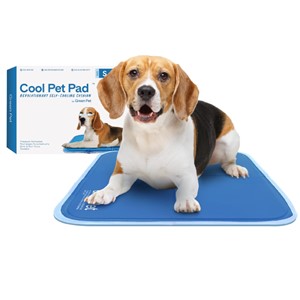
The Green Pet Shop Cooling Mat
Price At Time of Publish $40.00
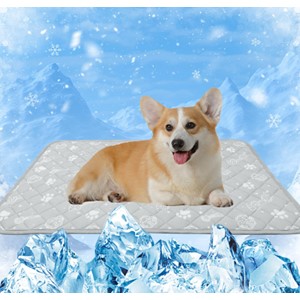
MH MYLUNE HOME Self Cooling Mat
Price At Time of Publish $40.00
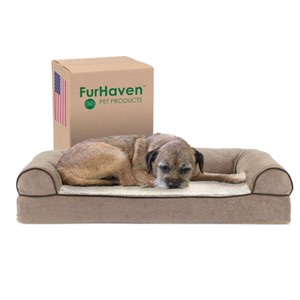
Furhaven Pet Products Cooling Gel Bolsters Small Bed
Price At Time of Publish $45.00
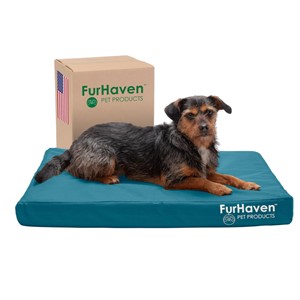
Furhaven Cooling Gel Medium Bed
Price At Time of Publish $42.00

ARF Pets Cooling Gel Pad
Price At Time of Publish $35.00
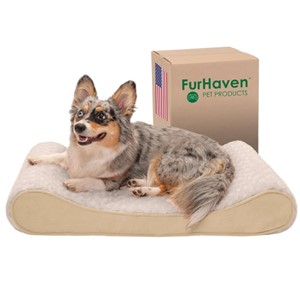
Furhaven Cooling Gel Small Bed
Price At Time of Publish $50.00
Price At Time of Publish $50.00
Orthopedic Dog Beds
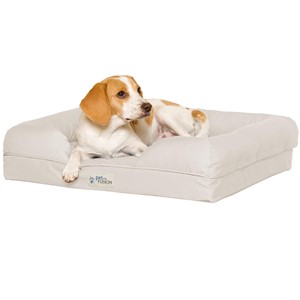
PetFusion Orthopedic Dod Bed
Price At Time of Publish $80.00
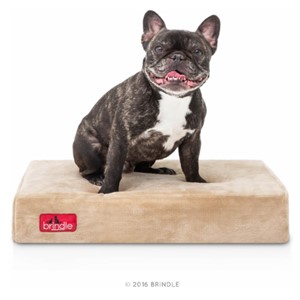
Brindle Orthopedic Bed Khaki
Price At Time of Publish $30.00
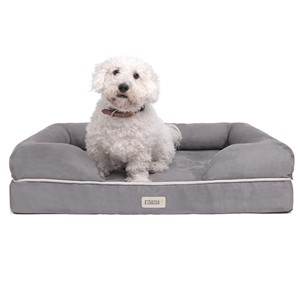
Friends Forever Orthopedic Bolster Bed
Price At Time of Publish $53.00
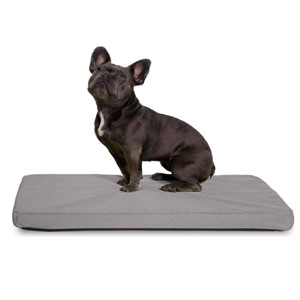
K9 Ballistics Tough Orthopedic Small Crate Bed
Price At Time of Publish $89.00
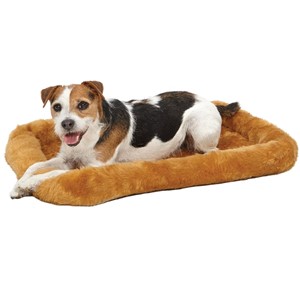
MidWest Homes Small Bolster Dog Bed
Price At Time of Publish $10.00
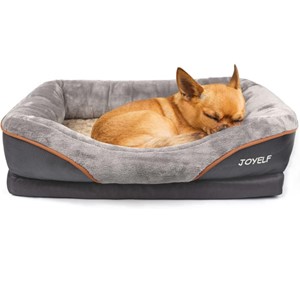
JOYELF Orthopedic Small Sofa Bed
Price At Time of Publish $40.00
Bolster Dog Beds
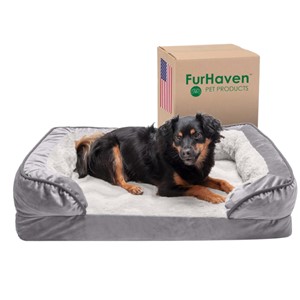
Furhaven Small-Medium Bolster Dog Bed
Price At Time of Publish $57.00
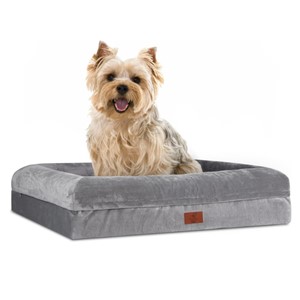
Yiruka Small Bolster Sofa Dog Bed
Price At Time of Publish $40.00
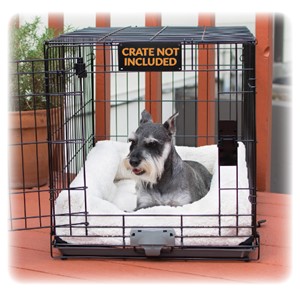
K&H Pet Products Bolster Crate Pad
Price At Time of Publish $22.00
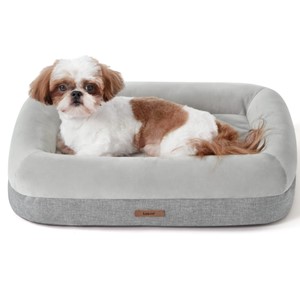
Leasure Small Bolster Dog Bed
Price At Time of Publish $40.00
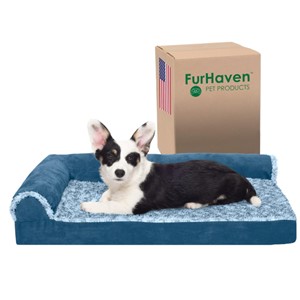
Furhaven Small-Medium L-Shaped Bed
Price At Time of Publish $39.00
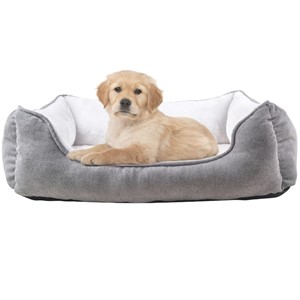
Long Rich Bolster Small Bed
Price At Time of Publish $27.00
Elevated Dog Beds
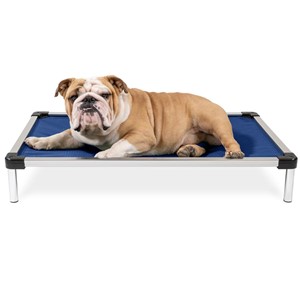
K9 Ballistics Chew Proof Elevated Small Bed
Price At Time of Publish $129.00
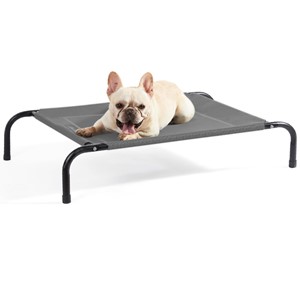
Bedsure Medium Elevated Dog Bed
Price At Time of Publish $33.00
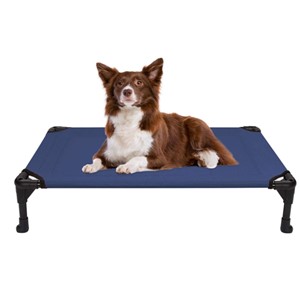
Veehoo Medium Elevated Dog Bed
Price At Time of Publish $45.00
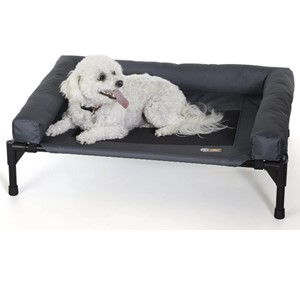
K&H Pet Products Elevated Bolster Dog Bed
Price At Time of Publish $57.00
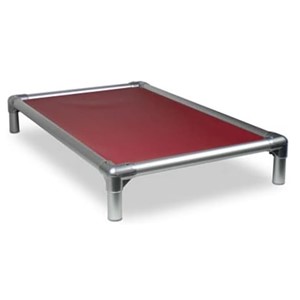
Kuranda Elevated Chew Proof Small Dog Bed
Price At Time of Publish $134.00
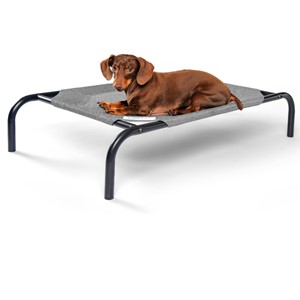
Coolaroo Small Elevated Dog Bed
Price At Time of Publish $21.00
Shop Cave/Donut Dog Beds
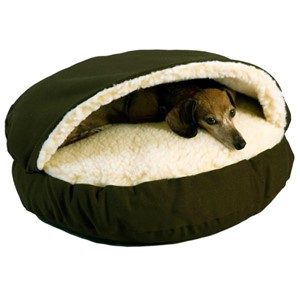
Snoozer Cozy Cave Bed
Price At Time of Publish $87.00
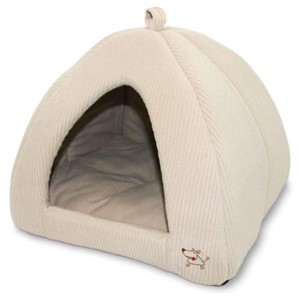
Best Pet Supplies Tent Bed
Price At Time of Publish $23.00
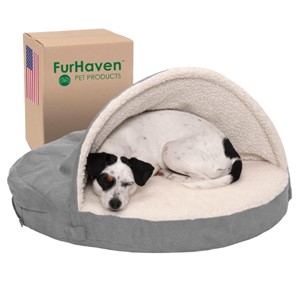
Furhaven Round Orthopedic Cave Bed
Price At Time of Publish $30.00
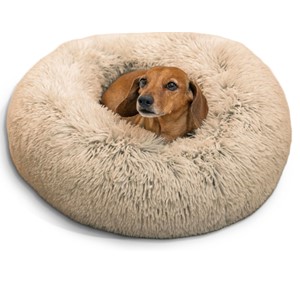
Best Friends by Sheri Original Calming Donut Bed
Price At Time of Publish $25.00
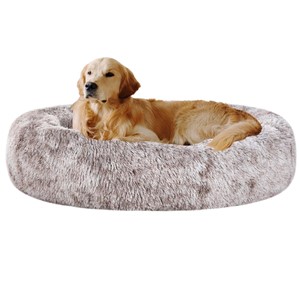
Coohom Oval Calming Donut Cuddler Bed
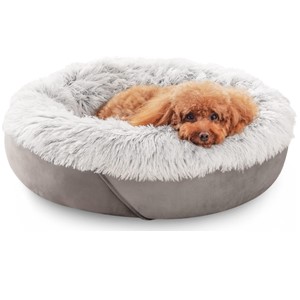
JOEJOY Calming Donut Small Dog Bed
Price At Time of Publish $33.00
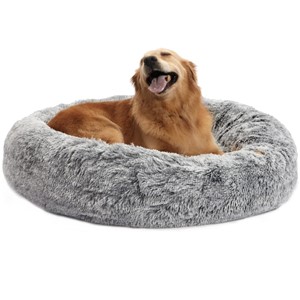
Bedfolks Calming Donut Dog Bed
Price At Time of Publish $66.00
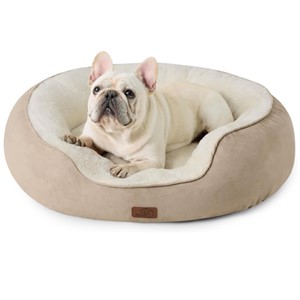
Bedsure Medium Donut Dog Bed
Price At Time of Publish $36.00

Bedsure Medium Donut Dog Bed
Price At Time of Publish $40.00
Related Articles
Below are some other related articles you might be interested in looking at.
- Are Crates Bad for Dogs
- Best Healthy Dog Food Brands
- Christmas Presents for My Dog
- Dog Parasite Symptoms
- How To Clean Dog Beds
- Ingredients To Avoid In Dog Treats
- Puppy Proofing Your House
- Signs Your Dog Is Ill
- Using Alexa for Dog Behaviors
- When Should A Dog Bed Be Replaced
Go back to the Dog Luxury Beds home page.

